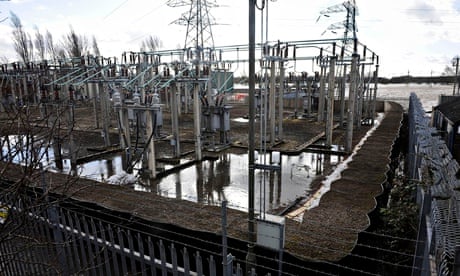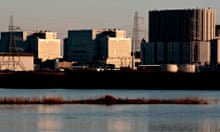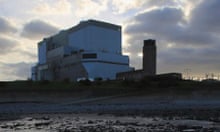Parts of Britain may be under water after the worst floods in half a century, but a team of top academics from Newcastle and Oxford University is warning that the country is at risk of water shortages that could shut down power stations and paralyse electricity supplies.
"It is difficult to fathom we should start to think about water shortages in the middle of these storms but only two years ago areas of Britain were suffering from severe droughts," said Ed Byers, a researcher at Newcastle University's engineering and geosciences department.
"The high dependency on water in electricity generation means there is a real possibility that in just a few decades some power stations may be forced to decrease production or shut down if there are water shortages, which may be expected with changes in climate and a growing population."
Byers, with another Newcastle colleague and Professor Jim Hall, director of the Environmental Change Institute at Oxford University, has been studying the impact on water of the government's proposed different energy "pathways" taken from the 2011 Carbon Plan.
Their new academic paper makes clear that one Department of Energy and Climate Change option – of using gas or other fossil fuels with high levels of carbon capture and storage (CCS) – could increase fresh water consumption by almost 70%.
Another option – using high levels of nuclear power – could lead to increases in the use of tidal and coastal water by almost 400%. Although sea water is clearly in much greater supply than fresh water from rivers, the increase in use could bring with it much more impact on the environment because of potentially harmful heated-water emissions.
Using wind power, in contrast, could save water. The academics conclude that a high level of wind or other renewable power technology, with a consequent reduction of other more water-intensive power systems, could result in fresh water consumption falling in the electricity sector by about 60%.
The academics have not looked at the impact of fracking – which uses huge amounts of water – but they say it would only increase pressure on water supplies even more.
Doug Parr, the chief scientist at Greenpeace, said the academics had again highlighted a significant concern: "This government's strategy for energy is immensely water intensive with nuclear, gas and now fracking requiring huge amounts of clean water to make them operational. There is a credible solution staring the government in the face; one that can create jobs and deliver economic growth and that solution is renewable energy and efficiency."
The research is published in the social and natural sciences journal, Global Environmental Change.








Comments (…)
Sign in or create your Guardian account to join the discussion